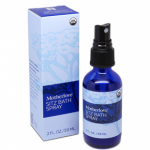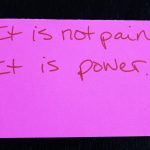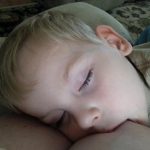By Wendy Wisner, IBCLC
***Ask an Expert is a blog feature hosted by a team of International Board Certified Lactation Consultants (IBCLCs). Once a month each IBCLC randomly chooses a question from The Badass Breastfeeder Facebook wall and provides their response on the blog.
Fan Question:
“I have a question. My 11 month daughter has a brown speck on one of her front teeth. I have been doing some research and it may be a cavity caused by night nursing. Has anyone had this problem? I’m taking her to the dentist tomorrow I’m just curious if this happens often. Thanks!”
I’m glad you’re taking your baby to a dentist to get a proper diagnosis. Stains on teeth can be caused by any number of things. I hope it’s not a cavity!
If it is a cavity, the first thing to do is to make sure you have a breastfeeding-friendly dentist. Unfortunately, many dentists believe that breastfeeding causes cavities, and recommend prompt weaning, especially at night. But cavities should not mean automatic nightweaning. If your dentist does not support your continuation of breastfeeding, ask your local breastfeeding support group for a dentist recommendation.
Breastfeeding in and of itself does not cause cavities. First, unlike bottle feeding, breastmilk does not pool in a baby’s mouth all night. Breastmilk only flows when a baby is actively sucking (and swallowing). Breastmilk actually contains anti-cavity agents like lactoferrin, which kills the bacteria that causes cavities. I have helped many older babies and toddler breastfeeding and the vast majority do not get cavities.
But under certain conditions and with other risk factors present, breastfeeding can contribute to the formation of cavities. It is theorized that certain children are born with vulnerable tooth enamel. Cavities are caused by the bacteria Strep mutans, so early exposure to these bacteria (usually when sharing utensils with a caregiver) can also increase the risk. Studies have shown that breastmilk alone is similar to water, and does not cause decay. However, when mixed with solid food, breastmilk becomes cariogenic (cavity causing).
So it is important to keep your baby’s teeth clean once he or she starts eating solids. If your daughter does have decay, you will need to be vigilant about cleaning her teeth before she nurses to sleep (for night and naps).
Topical fluoride treatments can halt the decay. Xylitol paste helps stop the growth of cavity-causing bacteria. And there are other, more holistic treatments that are worth investigating. Cavities can be halted, and breastfeeding can continue as normal.
Here is a great, thorough article about breastfeeding and tooth decay: http://kellymom.com/health/baby-health/tooth-decay/
And here is my personal account of nursing a toddler who had cavities: http://www.lalecheleague.org/nb/nbiss1-10p20.html
 Wendy Wisner is a Board Certified Lactation Consultant (IBCLC), writer, and mother of two amazing boys. In addition to her work with breastfeeding moms, she has published two books of poems, and a handful of articles about mothering and breastfeeding. She blogs at www.nursememama.com.
Wendy Wisner is a Board Certified Lactation Consultant (IBCLC), writer, and mother of two amazing boys. In addition to her work with breastfeeding moms, she has published two books of poems, and a handful of articles about mothering and breastfeeding. She blogs at www.nursememama.com.












